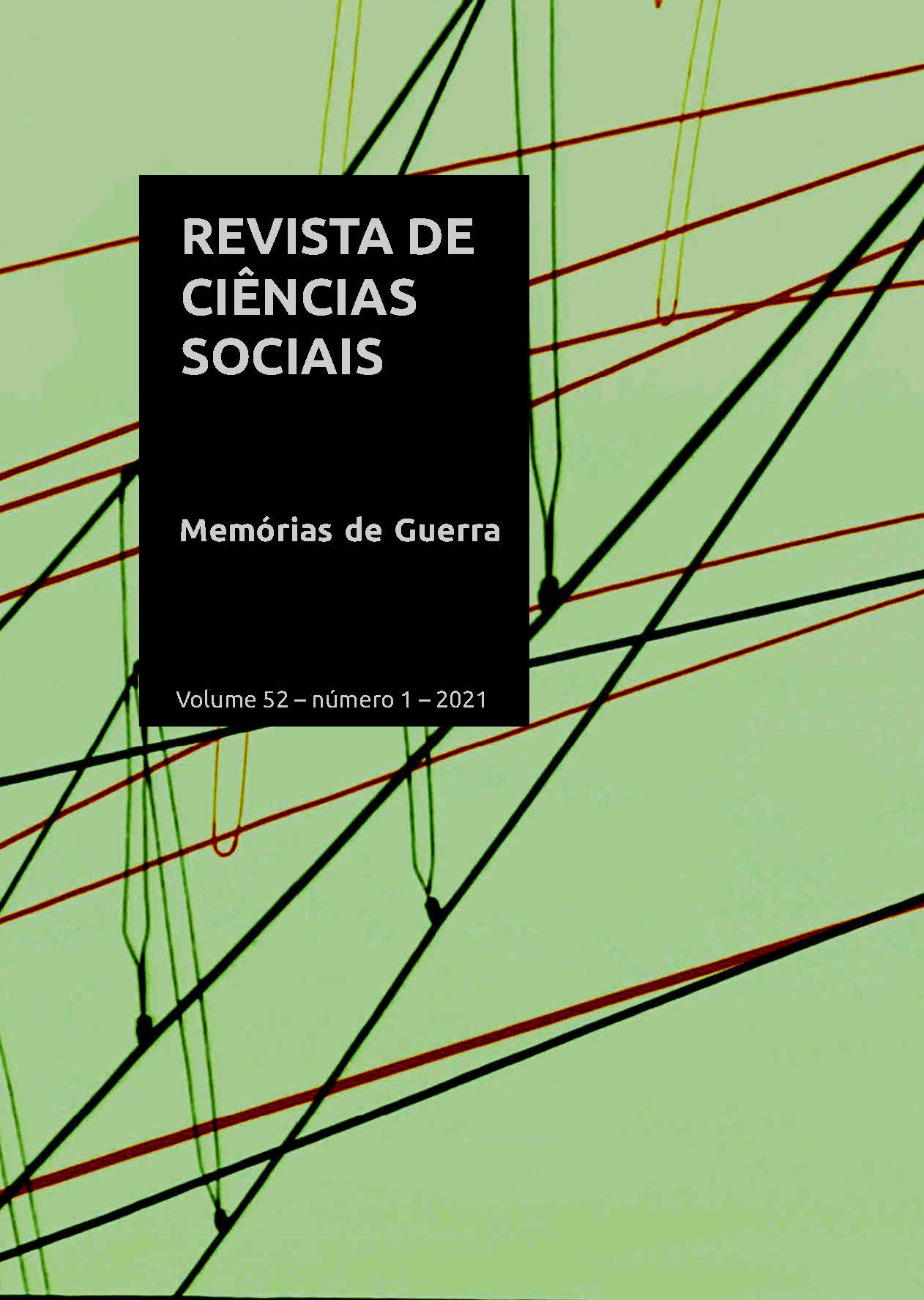The writing of women as a space for the elaboration of collective traumas
an analysis of the works Baratas by Scholastique Mukasonga and Meio sol amarelo by Chimamanda Ngozi Adichie
DOI:
https://doi.org/10.36517/10.36517/rcs.52.1.d08Keywords:
War, Genocide, Repetition, Writing, ElaborationAbstract
The present article describes itself to analyze the literary writing of the works Meio Sol Amarelo (2008) in Chimamanda Ngozi Adichie and Baratas (2018) in Scholastique Mukasonga, whereas the works provide the necessary therapeutic space so that the traumas from wars and genocides in their countries can be elaborated. Thus, the writing of the authors, in addition to rescuing the lost history of Rwanda and Nigeria allow the necessary elaboration so that the societies that were built in a system based on violence can overcome the repetition of violent acts, as Sigmund Freud points out in his work Repetir, recordar, elaborar (1914/1911-1913). In addition, we consider that the authors' writing portrays the voices of those who were doubly silenced, with regard to the silence imposed on their gender and ethnicity, which gives the works a double power and meaning.
References
ADICHIE, Chimamanda Ngozi. Meio sol amarelo. Tradução Beth Vieira. São Paulo: Companhia das Letras, 2008.
ASSMANN, Aleida. Espaços da recordação: formas e transformações da memória cultural. Campinas: Unicamp, 2011.
CHIMAMANDA Adichie: o perigo de uma única história. Youtube: 7 de Out.de 2009. 1 vídeo (19:19min). Publicado por TED. Disponível em https://www.youtube.com/watch?v=D9Ihs241zeg acesso em 20 de janeiro de 2020.
FREUD, Sigmund. Recordar, repetir e elaborar (1914). In: Observações psicanalíticas sobre um caso de paranoia relatado em uma autobiografia (“o caso Schereber”), artigos sobre técnica e outros textos (1911-1913). Tradução Paulo César Souza. São Paulo: Companhia das Letras, 2010. P. 193-209
GAGNEBIN, Jeanne Marie. O que significa elaborar o passado? In: Lembrar, escrever, esquecer. São Paulo: Editora 34, 2009. P.97-105.
HOMERO. Ilíada. Rio de Janeiro: Ediouro, 1996.
LEVI, Primo. É isso um homem? Tradução de Luigi Del Re. Editora Rocco, 1988.
MARQUES, Ana Martins. A vida Submarina. Belo Horizonte: Scrptum, 2009.
MUKASONGA, Scholastique. Baratas. Tradução Elisa Nazarian. São Paulo: Editora Nós, 2018.
NOAH, Trevor. Nascido do crime. Tradução Fernanda de Castro Daniel. Campinas: Verus; Porto Alegre: TAG, 2020.
NUNES, Alexandra Gomes. Chimamanda Ngozi Adichie: trajetória intelectual e seu projeto literário. (2016) Disponível em https://www.revistas.uneb.br/index.php/africas/article/view/4039/2558 Acesso em 25 de janeiro de 2020.
PERROT, Michelle; DUBY, Georges. História das Mulheres no Ocidente: A antiguidade. Porto: Editora Afrontamentos, 1990.
PERROT, Michele. As mulheres ou os silêncios da história. Tradução de Viviane Ribeiro. São Paulo: Edusc, 2005.
SELIGMANN-SILVA, Márcio. Narrar o trauma: A questão dos testemunhos de catástrofes históricas. Psicol. clin. [online]. 2008, vol.20, n.1, pp.65-82.
TELLES, Norma. Escritoras, escrita e escritura. In: História das mulheres no Brasil. DEL PRIORE, Mary (Org). São Paulo: Contexto, 2004.
WOOLF, Virginia. Mulheres e ficção. Tradução Leonardo Fróes. São Paulo: Penguin Classics Companhia das Letras, 2019.
Published
How to Cite
Issue
Section
License
Autores que publicam nesta revista concordam com os seguintes termos:- Autores mantém os direitos autorais e concedem à revista o direito de primeira publicação, com o trabalho simultaneamente licenciado sob a Creative Commons Attribution License, que permite o compartilhamento do trabalho com reconhecimento da autoria do trabalho e publicação inicial nesta revista.
- Autores têm autorização para assumir contratos adicionais separadamente, para distribuição não-exclusiva da versão do trabalho publicada nesta revista (ex.: publicar em repositório institucional ou como capítulo de livro), com reconhecimento de autoria e publicação inicial nesta revista.
- Autores têm permissão e são estimulados a publicar e distribuir seu trabalho online (ex.: em repositórios institucionais ou na sua página pessoal) a qualquer ponto antes ou durante o processo editorial, já que isso pode gerar alterações produtivas, bem como aumentar o impacto e a citação do trabalho publicado (Veja O Efeito do Acesso Livre).



